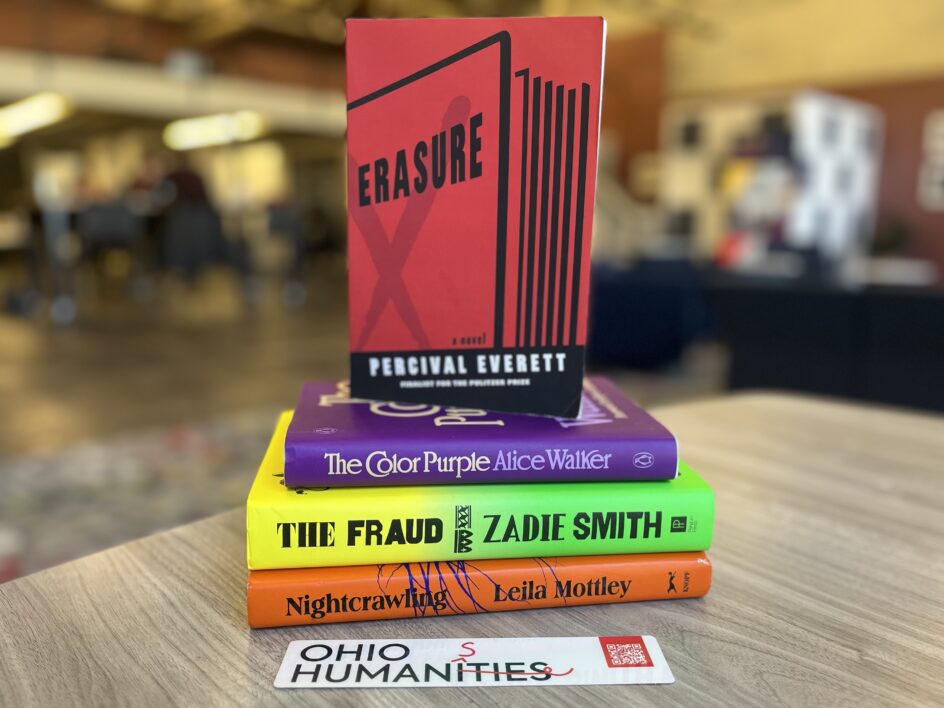By Rebecca Brown Asmo
The first time a teacher assigned a book written by a Black author to me, I was a junior in college. Before that, everything assigned to me was written and taught to me by White people. While I occasionally stumbled upon a book by a Black author in my personal time, it wasn’t until a Women’s Studies professor (who, not coincidentally, was also the first teacher I had ever had who wasn’t white) assigned Angela Davis’s Women, Race and Class that I was presented with language and thought that didn’t center the White experience. I loved the book but, at the time, its status as one of my “firsts” went unnoticed by me.
Growing up, I attended so-called “excellent” schools but, looking back, my academic education was narrow and monolithic. I learned about coming-of-age and love from men like JD Salinger, Ernest Hemingway, and John Knowles, from books where female characters were completely absent or present only to add to male characters’ storylines. When I was assigned books by female authors, it was usually works by Jane Austen or one of the Bronte sisters—classics for sure, but ones that felt so distant from the life I was living as a teen at the turn of the 21st century that I couldn’t truly connect with the characters’ experiences.
Stories about Black, Indigenous, LGBTQ, Muslim, Latino, or Asian characters were mostly absent or relegated to sidebars in my history textbooks. When I did find these stories, they were often full of stereotypes and caricatures—crafted by authors like Mark Twain, William Lederer and Eugene Burdick, or James Fenimore Cooper. Although I was a voracious young reader, my formal education left me utterly unaware of the joy, tragedy, richness, and thrill that exists beyond the “classic” literary canon, when one embraces the diversity of intellectual experiences that has always existed but is only recently being appreciated and uplifted more broadly by White Americans.
There are moments when I grieve what could have been if my exposure to literature had been more inclusive. How would my life be different if I had learned about coming-of-age from Anne Moody, love from bell hooks, marriage from Zora Neale Hurston, or the American experience from James Baldwin? Since I can’t change the past, I choose to dwell on a different truth: I am in a season of life where the literature I missed out on then can make an imprint on my soul today, in ways that were not possible when I was a teenager. Today, I am consumed by a quest to never miss out on the thrill of a truly diverse intellectual life, and I am determined to bring others along with me. My friends have taken to calling me a “book bartender” or “booksologist” because I always recommend books to them that they might not otherwise encounter in their everyday life.
In honor of Black History Month, I’d like to recommend a Black author whose books have been lighting up my nightstand this year: Percival Everett. The Washington Post has called Everett “one of the most adventurously experimental of modern American novelists.” Everett is as celebrated as he is prolific, with 24 novels published since 1983. His 2001 novel Erasure was recently adapted into the Oscar-nominated film American Fiction. Next month, he will release James: A Novel, which retells the story of Huckleberry Finn from the point of view of Jim, Huck’s enslaved companion—easily one of the most anticipated books of 2024. Everett’s books are challenging, but not long or plodding. I guarantee they will open your mind to new ways of thinking about American history, literature, and culture.
If you are looking for more book recommendations, let me point you in the direction of three Black content creators (aka “bookstagrammers”) who have led me to challenge and diversify my reading habits over the years:
- Traci Thomas, creator of The Stacks podcast (@thestackspod)
- Reggie Bailey, creator of the “10 books 10 decades” challenge (@reggiereads | @10books10decades)
- Cree Myles, curator of All Ways Black from Penguin Random House (@allwaysblack | @creemyles)
If you’re looking for more book recommendations, here’s what else our staff is reading.
“I was just ill-read, that’s all, because I had gone to schools where…[I was] ill-taught. And they didn’t have any books in my libraries, so it was a long time before I had the thrill of being introduced to them.”
Toni Morrison, in a 1994 interview in response to a question about why she didn’t read a book by Zora Neale Hurston until the 1970s, cited in A Life of One’s Own: Nine Women Writers Begin Again by Joanna Biggs
Happy Black History Month, and happy reading!

